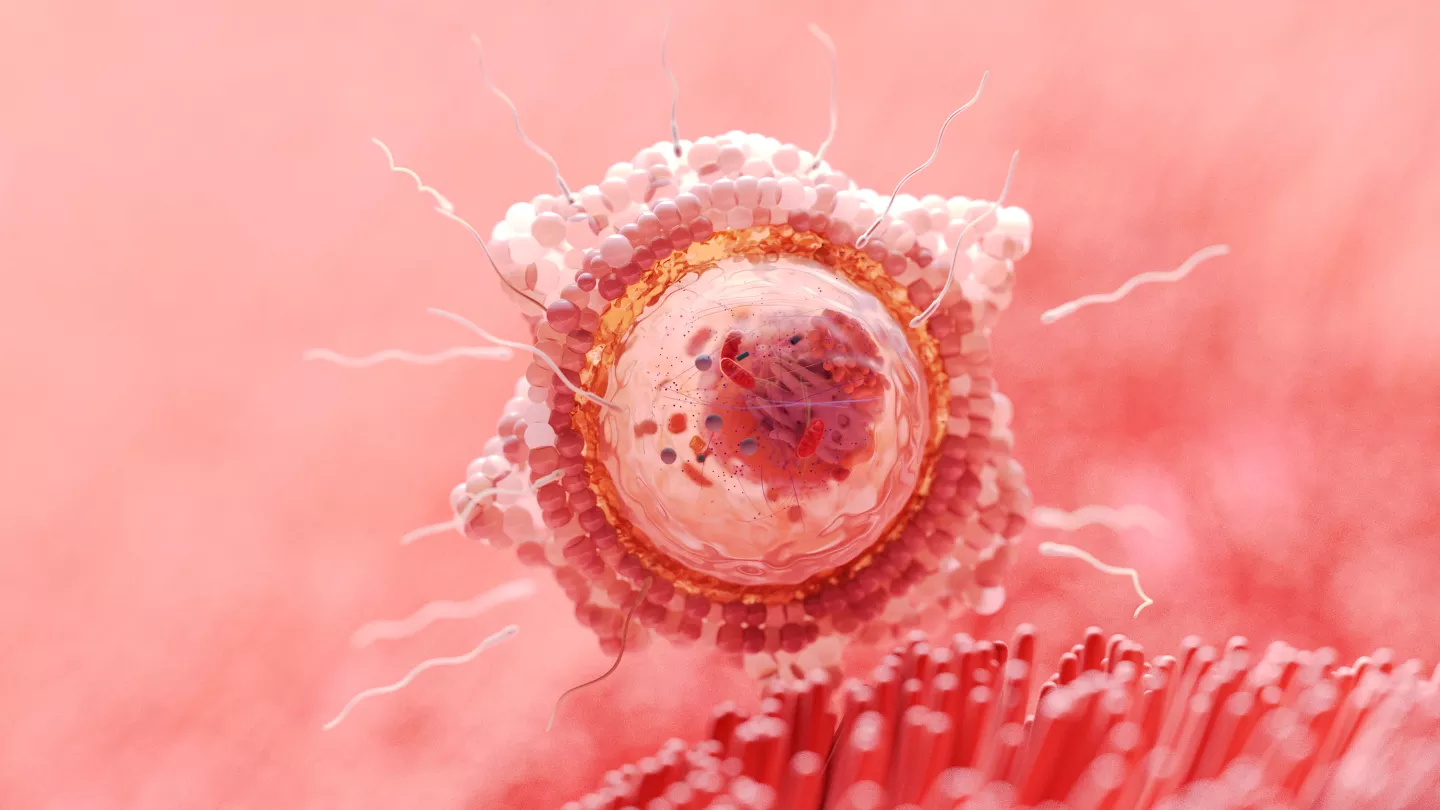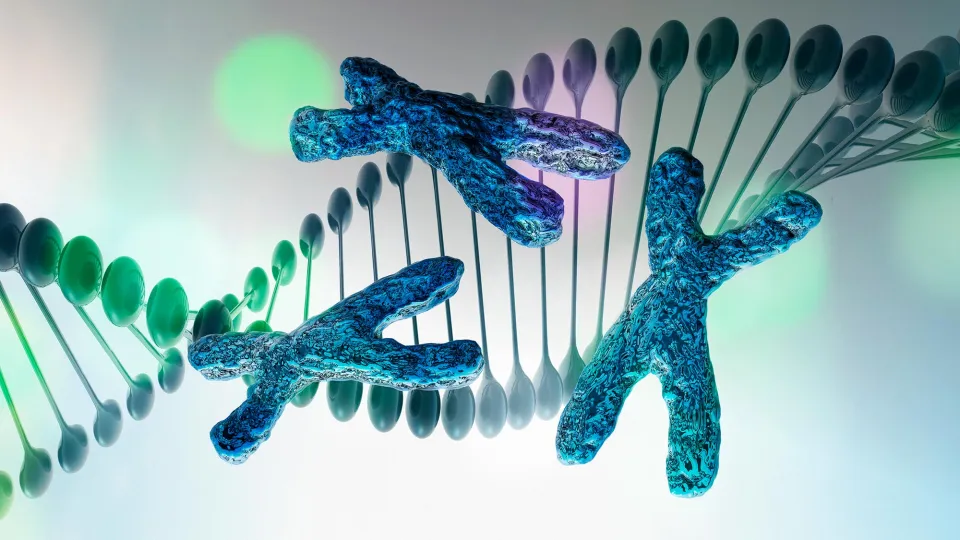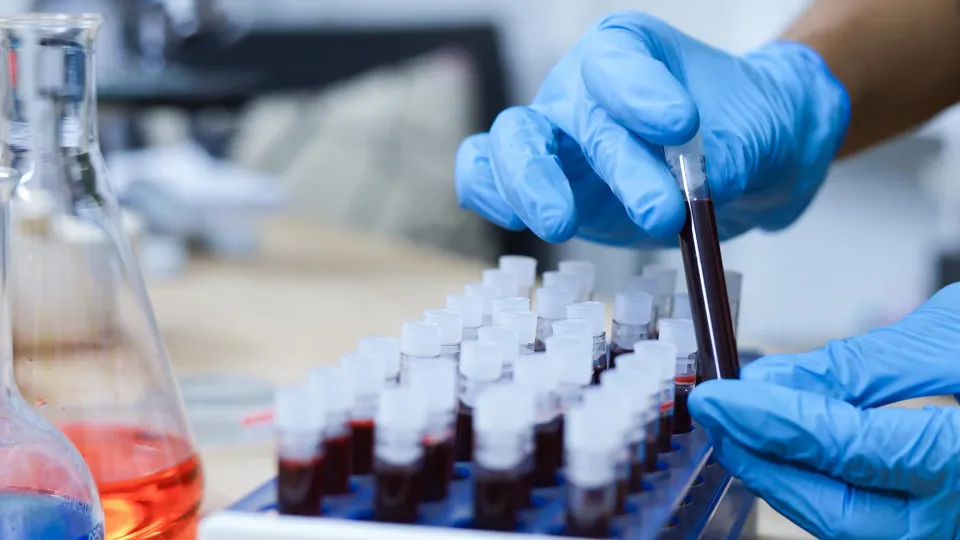News Brief
Investigating DNA Packaging in Sperm
October 23, 2024

To maximize motility, sperm cells have evolved a streamlined structure with minimal cytoplasm and organelles and highly condensed DNA in the nucleus. Unlike in most cells, where DNA is wrapped around histone proteins, sperm DNA is associated with small nuclear proteins called protamines that provide an even tighter DNA condensation. This ultra-compact packaging must be reversed upon egg fertilization to make DNA accessible for enzymatic processes. These unique characteristics of sperm cells present a valuable opportunity to study how DNA compaction influences cell function.
Dmitry Fyodorov, Ph.D., and colleagues have received a four-year, $2.2 million grant from the National Institutes of Health to study how sperm DNA is packaged with proteins to form chromatin—the DNA/protein complexes within chromosomes. Using Drosophila as a model system, his lab will study factors that influence chromatin assembly and remodeling during sperm formation, when chromatin transitions from its typical structure to the tightly packaged form that occurs in sperm. The researchers will also study the relaxation of sperm chromatin during fertilization that is necessary for DNA replication and gene transcription to occur. The results should provide insights into sperm chromatin remodeling and could lead to improved diagnostic and therapies for cases of infertility in which chromatin metabolism is disrupted. In addition, deliberate manipulation of sperm DNA packaging could offer novel approaches to contraception.
Dr. Fyodorov is professor of cell biology at Einstein. (1R01HD114814-01A1)



